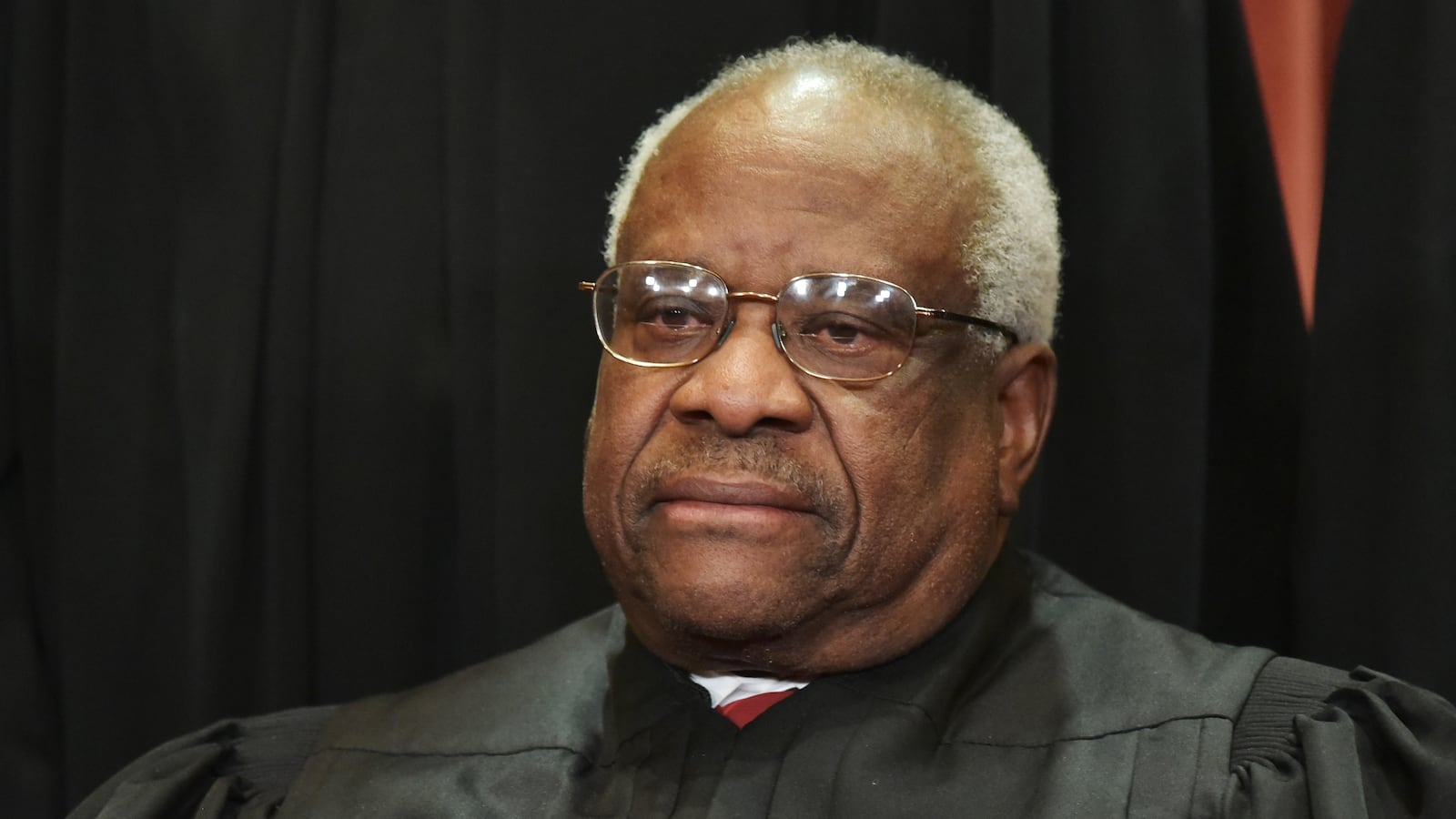The U.S. Supreme Court on Thursday upheld a South Carolina congressional map that a lower court said had been racially gerrymandered to openly discriminate against Black voters in the state. The high court’s 6-3 decision in Alexander v. South Carolina NAACP raises the bar to prove racist gerrymandering and will make it harder for lawmakers to fight unjust voting maps—but for one conservative justice, it didn’t go far enough. In a solo concurring opinion to go along with Justice Samuel Alito’s opinion for the court, Justice Clarence Thomas suggested that federal courts should not have the power to weigh in on redistricting cases at all. “Drawing political districts is a task for politicians, not federal judges,” he wrote. “There are no judicially manageable standards for resolving claims about districting, and, regardless, the Constitution commits those issues exclusively to the political branches.” Attacking previous iterations of the court for its “boundless view of equitable remedies” and “flexible power,” he pointed to precedents like Brown v. Board of Education, the landmark civil rights case that struck down racial segregation in schools, as one of the “extravagant uses of judicial power… at odds with the history and tradition of the equity power and the Framers’ design.”
Read it at Slate






